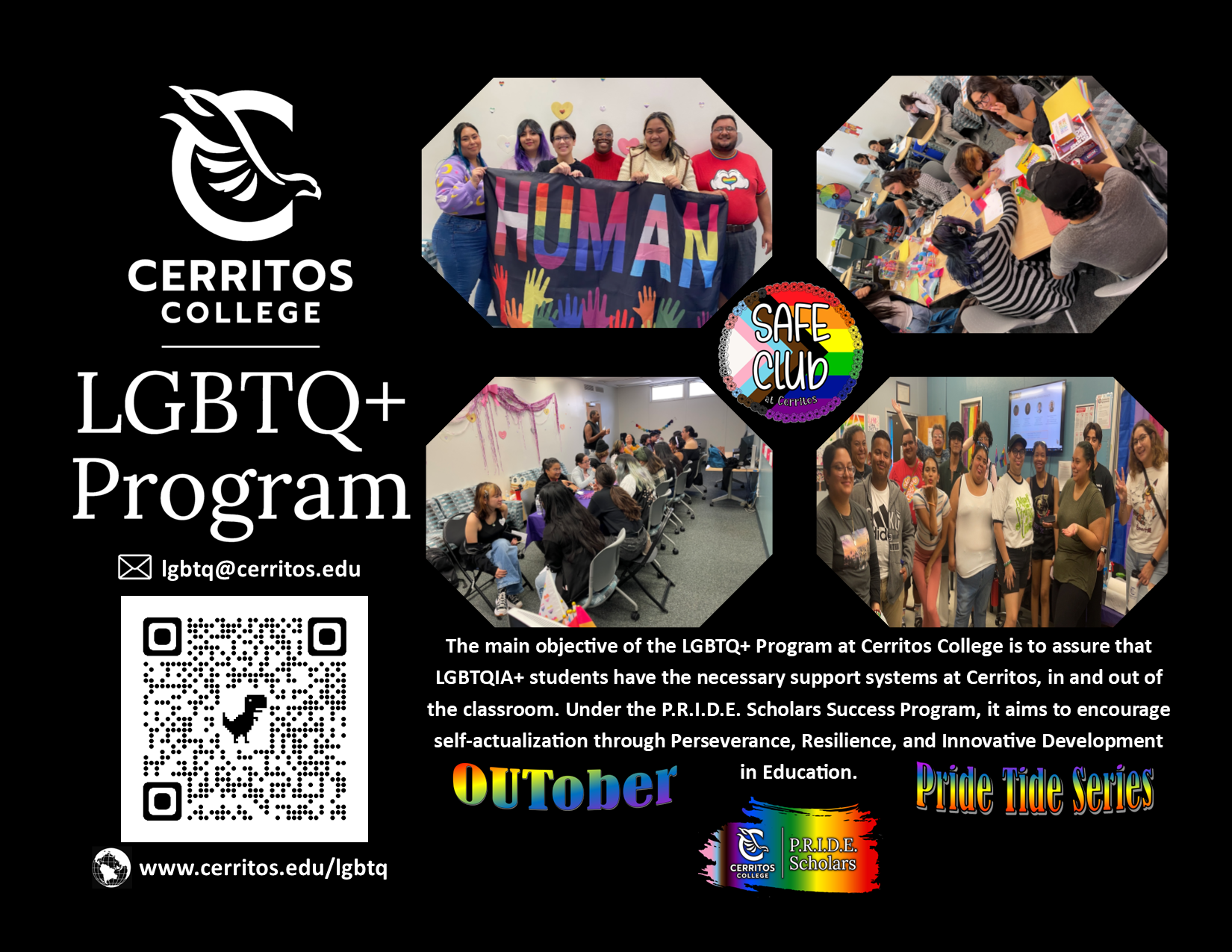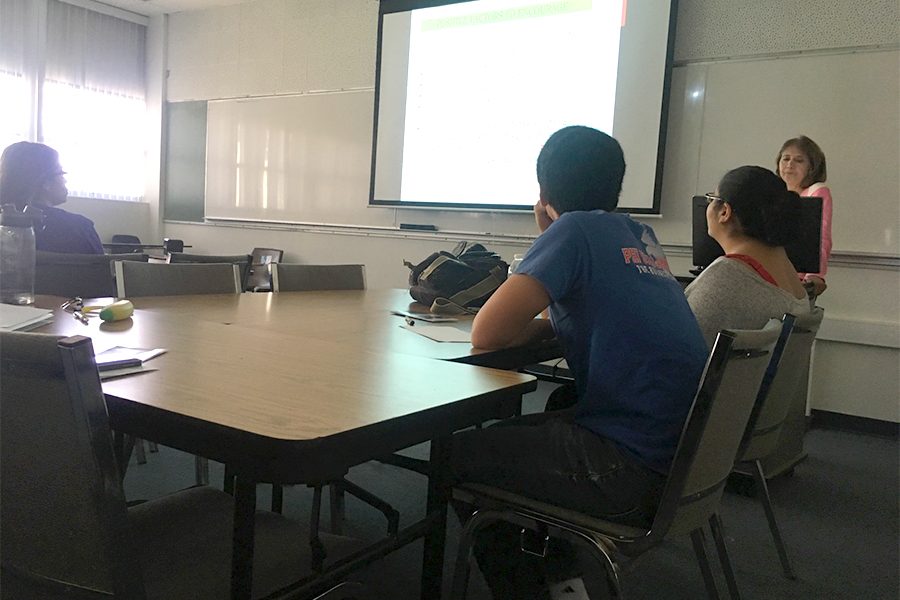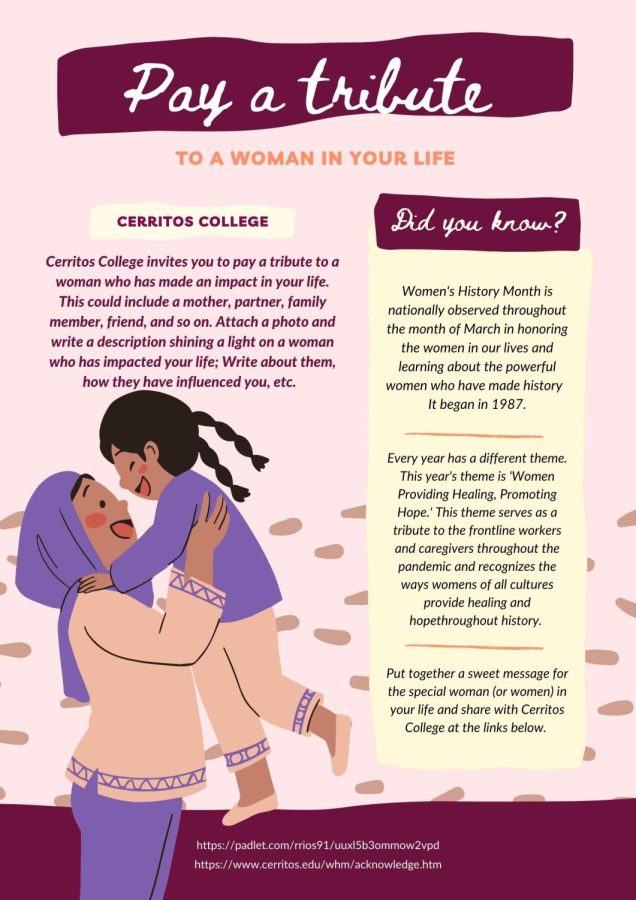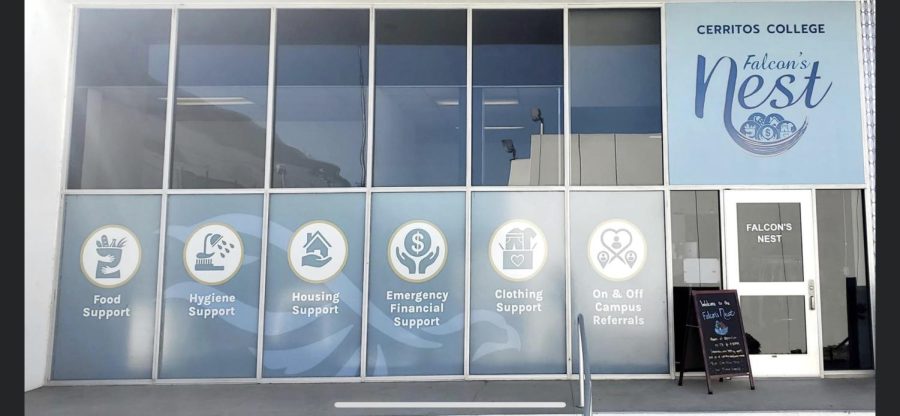Computer engineering major Daniel Ramirez is planning on returning to college and was diagnosed with depression.
He walked into the Depression Workshop that took place on Monday, Sept. 19 put on by the Re-Entry Resource Program and led by Maria Cevallos, MSW DMH, Los Angeles County Sponsored.
Ramirez joined the six other students, who were all sitting in a small group in front of the class, ready to ask questions.
“I have a disability, I saw the depression workshop and I decided to come to it. I’ve been going through the symptoms of depression for a little while, most of the time that I have been off-campus depression set in.”
Cevallos explained that a chemical imbalance in the brain is a cause of depression and went to explain that less activity equals a depressed brain.
She discussed how situational life changes can be the cause of depression such as, the death of a loved one, domestic violence that has taken place for a long time, illness and death of a close friend or family member.
Cevallos listed the symptoms as:
- Talking about depression or suicide
- Sudden irritability
- A set deterioration in grades or schoolwork and home activity
- Substance abuse
After a question focused on the differences between adolescents and adults who have been diagnosed with depression, the presenter noted that there really isn’t one.
Cevallos stressed the importance of not becoming isolated and stated that picking up phone calls from family and friends may make a difference.
This is not to be confused with healthy alone time, which takes place when people run errands, read a book or practice self-care.
According to the presenter, bouts of depression on youth tend to last approximately six to nine months, but in some people, it can go on for years.
Cevallos said, “Teens internalize feelings and therefore are more at risk for suicide.”
The presentation stated that treatment usually consists of a clinician making an assessment of the person, including school and home life as well as examining the medical history of a patient.
The cause of stress is taken into consideration and both the person and the practitioner work together to determine the changes that the patient will work toward.
When necessary, psychotropic medication is prescribed, which helps with symptoms, but the importance of therapy to get to the root of the cause was stressed.
Supportive strategies were presented by Cevallos, which include, setting healthy boundaries, breathing from the diaphragm 10 times slowly to re-shift focus, and seeking a therapist.
Activities such as exercising for 30 minutes a day, preparing nutritious meals, setting sleep schedules that include seven to eight hours of sleep a night, and meditation were also presented as supportive strategies.
Ramirez walked out of the workshop beaming and stated that he believed treatment for depression was hard to come by, so this workshop helped him.
“It gave me the sense of hope that one day it will be gone and it won’t come back.”
He went on, “The fact that you can recover, recovery is very important, in all aspects of your life.”
Ramirez will be seeking out the resources presented to him at the workshop, which include the counselors available at the Health and Wellness Center.
According to Cevallos, this is was one of the goals of the workshop.
She said, “The workshop is set up to inform students that we have a health center available to students, if they have any issues they can talk to a therapist, that’s a very important message to get out here.
“So many young people [go] through things and don’t know where to look for help. Maybe the family or parents don’t know about therapy and the benefits.
She went on, “Depression is one of the most frequent mental illnesses that affects people from all sorts of society and students in particular as they are transitioning into young adulthood and with all the stressors of that, sometimes they don’t know where to go.”
“Mental health can affect anybody at any time in life and let’s not try to stigmatize people who have mental illness because it can be you or me.”












